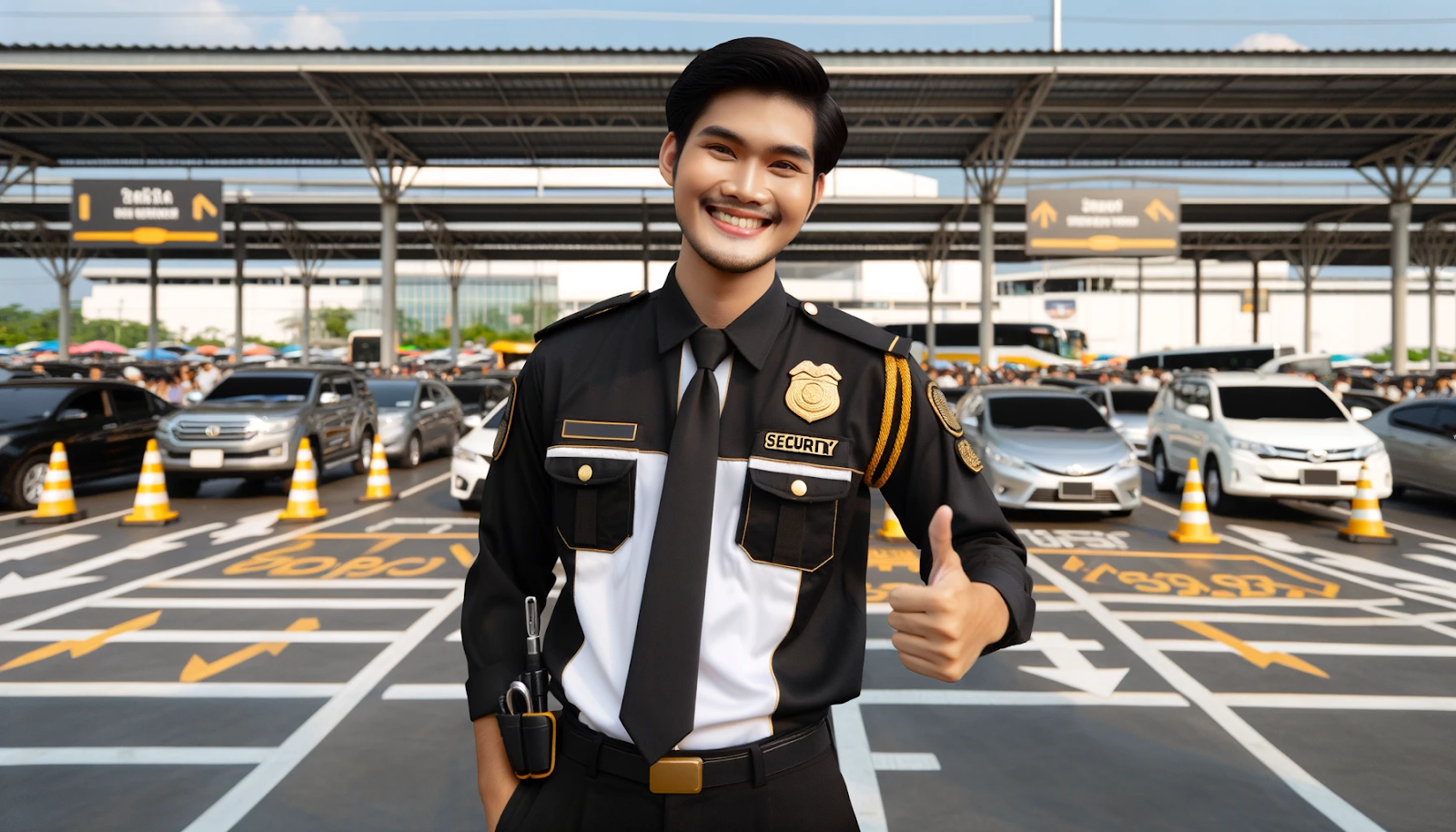Managing parking areas and transportation is a critical aspect of event security. Whether it's a concert, conference, or sporting event, ensuring attendee safety and minimizing congestion-related risks require meticulous planning. Let's explore strategies for keeping parking and transportation smooth, secure, and attendee-friendly.
- Pre-Event Planning and Coordination
- Site Assessment: Conduct a thorough assessment of the parking facilities and surrounding areas to identify potential security concerns and logistical challenges. Factors like road width, lighting, and traffic patterns are crucial.
- Staff Training: Security staff should receive training in efficient traffic management and communication skills. They should also be familiarized with event maps and emergency protocols.
- Coordination with Local Authorities: Partnering with local law enforcement ensures coordinated responses to emergencies and helps handle overflow parking situations.
- Event Parking Management
- Designated Zones: Divide parking lots into zones for VIPs, staff, and general attendees. This segmentation reduces traffic jams and ensures accessibility.
- Clear Signage: Clearly visible signs at strategic points can help direct attendees, reduce confusion, and prevent unauthorized parking.
- Shuttle Services: Offering shuttle buses from offsite lots can relieve pressure on on-site parking. Ensure shuttle stops are marked, and the service is efficient.
- Valet Services: For more significant events, valet parking can help streamline the parking process. Ensure that valets follow strict security protocols.
- Transportation Security Protocols
- Checkpoint Inspections: Staff should be trained to inspect vehicles at designated entry points, focusing on unauthorized items and suspicious behavior.
- Perimeter Control: Setting up barriers or fencing around the parking areas ensures controlled entry and exit points, reducing the risk of unmonitored access.
- Lighting and Surveillance: Well-lit parking lots deter criminal activity, while CCTV surveillance provides real-time monitoring for quick response.
- Crowd Management and Safety Measures
- Emergency Plans: Ensure staff is well-versed in evacuation routes and procedures in unexpected situations like fires or medical emergencies.
- First Aid Stations: Clearly marked medical stations and trained personnel can quickly assist with health-related issues.
- Communication Channels: Provide radios or communication devices to staff for effective coordination and rapid dissemination of information.
- Technology Integration for Efficiency
- Parking Apps: Real-time parking availability information through apps can guide attendees to the nearest spots, reducing unnecessary circling and congestion.
- Automated Barriers: License plate recognition or ticket-based barriers automate parking access, reducing wait times and manual verification.
- Drones for Monitoring: Drones can offer a bird's-eye view to identify congestion points, suspicious activity, or medical emergencies.
Frequently Asked Questions (FAQs)
How early should I arrive to secure parking for an event?
- Arriving 1-2 hours early is advisable, as it provides enough time for traffic delays and finding parking.
What should I do if my vehicle is damaged in the parking lot?
- Immediately report the damage to the security staff or event management and document it with photos.
Is it safe to leave valuables in my car during events?
- It's best to leave valuables at home or carry them with you. If unavoidable, store them out of sight.
What steps can I take to avoid congestion when leaving the event?
- Follow the staff's exit directions and consider waiting a short time before departing to avoid peak congestion.
.png)
.png)
.png)

.png)
.png)

.png)
.png)
.png)
.png)
